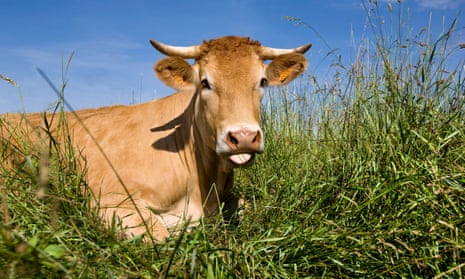Environmentalists have warned that sections of the European commission may be “deliberately harming climate action” after a report into the climate impact of the common agricultural policy (CAP) was quietly published the day after the EU elections.
The study for the EU’s agriculture department was finished almost a year ago but remained unpublished while debate on the CAP’s future rumbled on, leading the environmental group WWF to lodge a freedom of information request for its release.
Imke Lübbeke, the climate and energy chief at WWF’s European policy office, said: “You couldn’t make it up. The EU commission has been talking about ‘climate urgency’ while sitting on a report which shows how little farming policy is doing for the climate – and how much more it could and should do.
“At best it is a case of one hand not knowing what the other is doing. At worst, it is deliberately harming climate action and our commitment to keep the temperature rise to 1.5C, as the Paris agreement says.”
Agriculture is responsible for about 10% of Europe’s greenhouse gas emissions but a lack of “strong external drivers” from the commission is hampering the fight to reduce them, according to the official EU paper.
The study questions the effectiveness of current CAP subsidy rules that allow farmers to farm on wetlands and peatlands and plough up “permanent grasslands”, releasing large volumes of carbon dioxide as they do so.
Because the CAP does not require states to record how many grasslands are ploughed, the paper can only estimate the cost of emissions reductions under the policy at €274 per tonne of CO2 equivalent – more than 10 times the price for industry.
Marco Contiero, Greenpeace’s EU agriculture policy director, said the CAP was “locking Europe further into factory farming and a pathway to climate disaster”.
He said: “This study shows once and for all that the CAP is failing to tackle agriculture’s contribution to climate breakdown. In particular it has proved unable to address the detrimental role that meat and dairy farming and consumption play.”
The analysis, which will feed into an EU policy paper this summer, also calls for careful consideration of whether legislative moves to encourage more sustainable diets are “feasible and desirable”.
